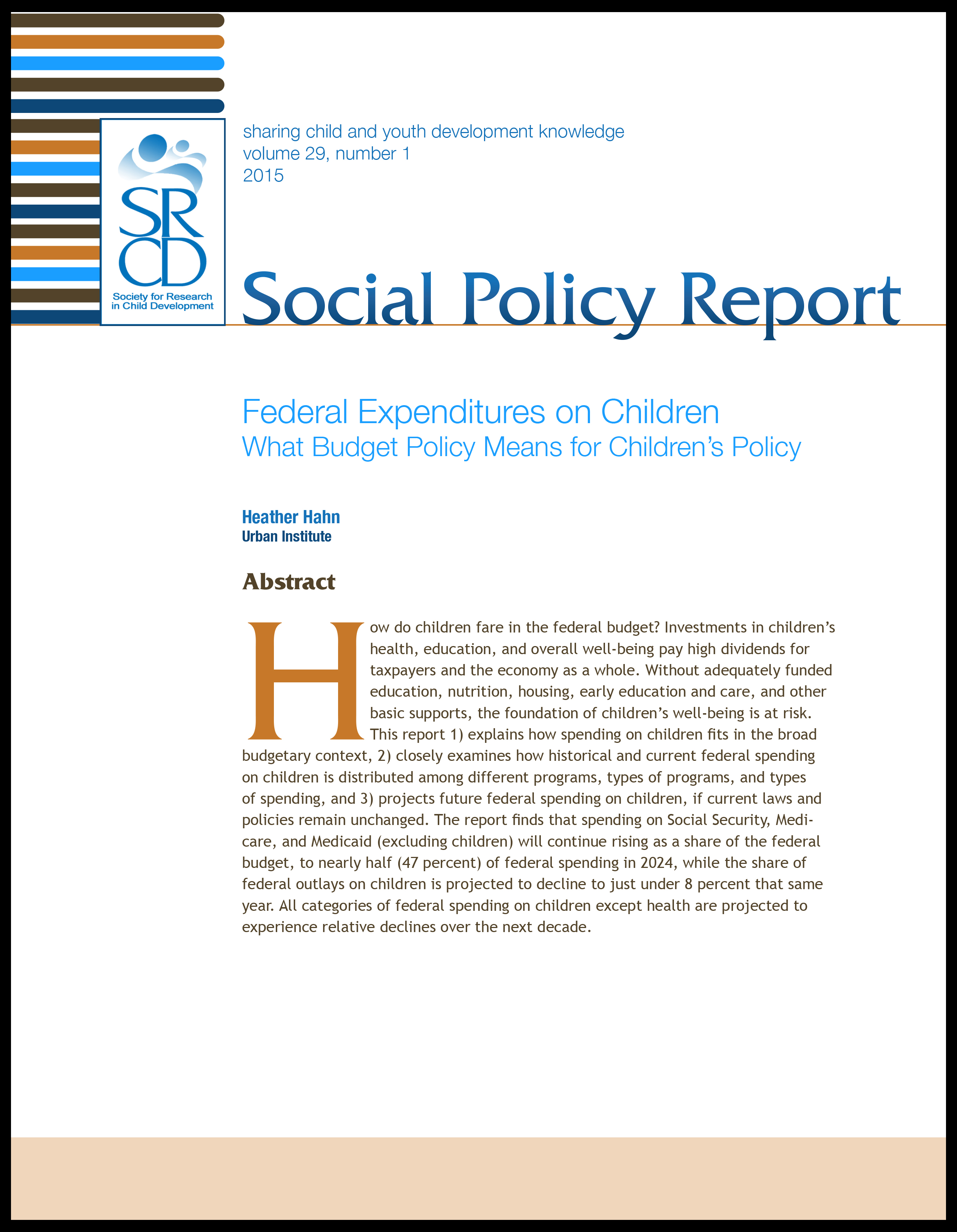From “Federal Expenditures on Children: What Budget Policy Means for Children’s Policy,”
a report by Heather Hahn (Urban Institute)
“Why do we care about spending on children? Investments in children’s health, education, and overall well-being pay high dividends for taxpayers and the economy as a whole. High-quality early childhood programs and K-12 education, stable housing, and adequate nutrition help children grow into healthy adults who are able to support themselves and contribute to economic growth...” see page 3 for more
From “Federal Spending Priorities Are Wrong,”
commentary by Ron Haskins (Brookings Institution)
“Budget is policy. That being the case, the analysis of spending on children in the federal budget by Heather Hahn is a terrific overview of changes in federal policy toward children as well as a warning to readers that federal policy increasingly sacrifices children’s needs to provide money and health services to the elderly…” see page 18 for more
From “Follow the Money,”
commentary by Ruby Takanishi (New America)
“As the funds decline and the needs for programs and services grow, the nation faces an untenable situation: the current and future levels of funding, without any changes in the programs themselves, will reach a smaller number of the eligible children, and likely at a level of quality inconsistent with research…” see page 19 for more
From “The Big Shift and Future Public Investments in Children,”
commentary by W. Steven Barnett (Rutgers University)
“Many programs from early childhood through adolescence can produce benefits considerably in excess of their costs… Cutbacks in public spending on children and failure to expand programs to all who could benefit will harm child development. Negative consequences may be so large that taxpayers and not just the beneficiaries end up net losers…” see page 21 for more
From "Federal, State and Local Expenditures: Not Suitable for Young Children,”
commentary by Sarah Ann Kotchian (Holland Children's Movement)
“A 2014 poll by the First Five Years Fund of key swing states showed voters want federal and state leaders to invest in early childhood now. The issue of investing early and investing well in children is clearly a nonpartisan issue. More than three-in-five in each state support a federal plan to help states expand access to quality early childhood programs from birth to age five, even if it increased the deficit in the short-term but paid for itself later through improved education, health and economic outcomes…” see page 23 for more

